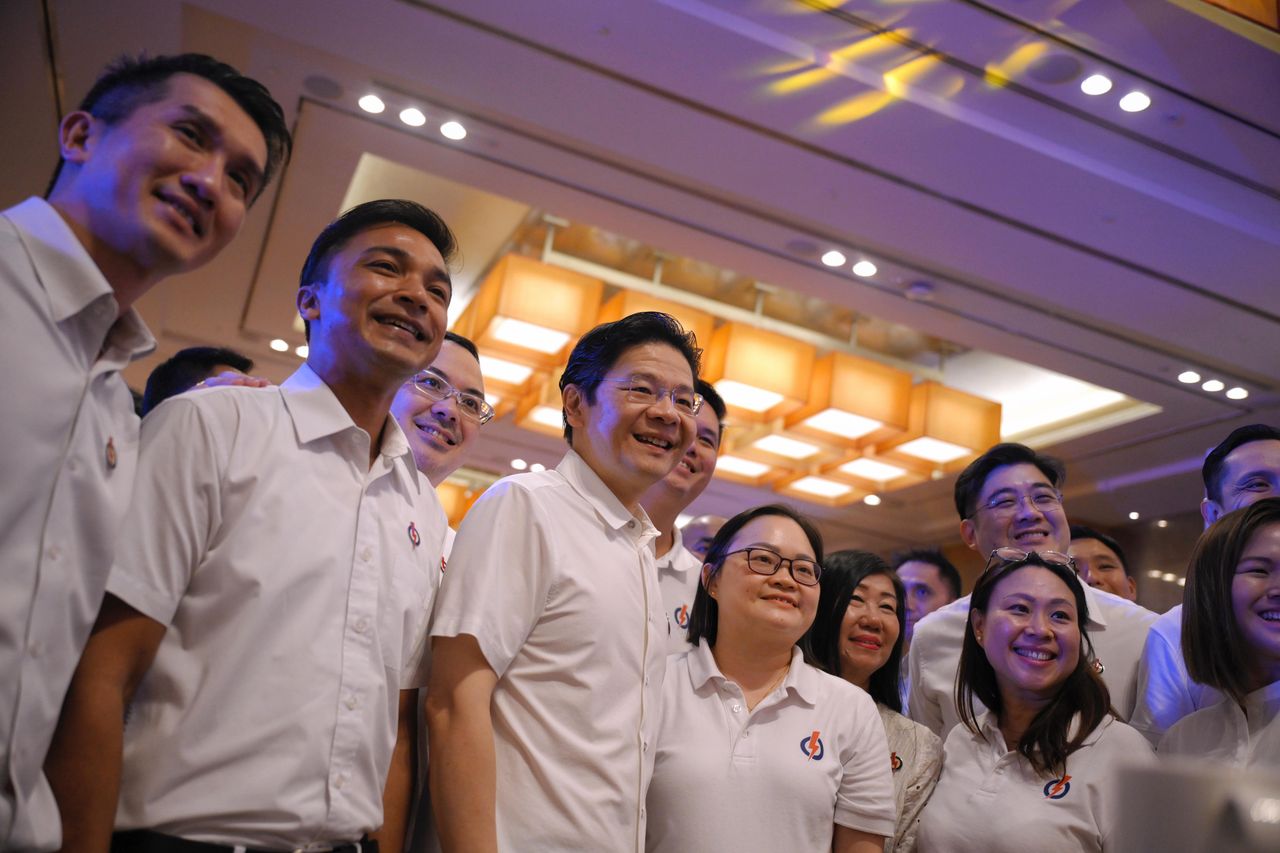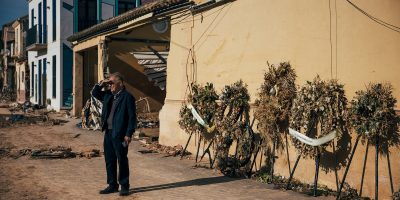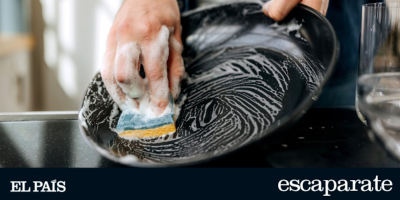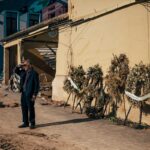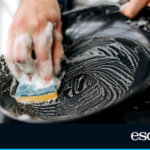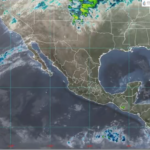AHEAD of the next general election (GE) in 2025, forming “the best team for Singapore” is the priority, Prime Minister Lawrence Wong said on Sunday (Nov 24) at the People’s Action Party (PAP) conference.
While it remains hard to persuade good people to enter politics, renewal must begin now and cannot wait for the retirement of older ministers, said PM Wong, who is the party’s deputy secretary-general.
“Please don’t think it is guaranteed the PAP will win and form a stable government,” he told party activists at the biennial event. While the PAP “could afford to stay in the background” in the past, it can no longer do so.
Political renewal in a more contested landscape was one of three main themes in his speech, at the last party conference before the GE is due by November 2025.
Earlier in the conference, Senior Minister Lee Hsien Loong announced his intention to step down as PAP secretary-general and endorse PM Wong as party leader, to be elected by the Central Executive Committee at its next meeting.
PM Wong began with brief remarks in Malay and Mandarin, reflecting on the PAP’s 70th anniversary this year and thanking party members.
BT in your inbox

Start and end each day with the latest news stories and analyses delivered straight to your inbox.
While the PAP now has far more resources than when it began, it also faces far more formidable challenges. “There is no guarantee that we will be around for ‘PAP 100’,” he said, referring to the party’s 100th anniversary.
Foreign challenges, domestic dreams
First, Singapore faces a more dangerous world. Although a US-led global order shaped international norms and behaviours for decades, the US “no longer wants to be the world’s policeman” and other rising powers are not yet ready for larger global responsibilities.
This vacuum of leadership implies more conflict and instability, with state and non-state actors emboldened “to test boundaries, often with little or no consequence”, he said, with reference to the wars in Ukraine and Gaza.
And while major powers should work together to tackle shared challenges, there is deep mistrust between the US and China, making it harder to find common ground.
“The dynamics will be with us for some time. We’re not talking about one or two years… I think we will have to grapple with this for perhaps the next decade or beyond,” said PM Wong.
Singapore must be ready to stand firm and defend its interests; make friends internationally; and stay united as a people, he said.
Such unity also contributes to Singapore’s high international standing. He said: “When we speak, others know there is a Singaporean point of view, coherently articulated by the government and supported by Singaporeans.”
At home, the next challenge is to renew the social compact, refresh the Singapore dream, and assure Singaporeans that the future will be better than the present, said PM Wong.
That is what the Forward Singapore initiative aims to achieve, reviewing policies and resetting attitudes and mindsets, he said. The changes on the agenda are just beginning and will unfold over several years, he added.
Contestation and renewal
Yet even as the PAP works towards this, it must also tackle immediate concerns such as the cost of living, and adapt to new political realities, said PM Wong.
In other countries, inflation has caused incumbent parties to lose vote share or even the mandate, he noted – and the PAP feels this pressure too.
In Singapore, the government is trying to shield the people from the worst effects of global inflation, with several major packages. Noting that he is preparing for Budget 2025, PM Wong – who is also finance minister – said: “I will see how we can continue to provide additional support in the Budget.”
But more fundamentally, the PAP faces a unique political challenge – very few parties have been in government as long as it has. PM Wong warned: “Never assume we will not see a change in government in our lifetimes.”
Most Singaporeans want the PAP to form the government, but also want more opposition voices in Parliament, he said. There is thus a risk of losing “a stable and good government”.
It does not take a large vote swing for the opposition to become the government, he warned, with many group representation constituencies (GRCs) and single seats being closely contested in the last general election.
“A modest swing in popular votes against the PAP can lead to very different electoral outcomes,” he said. This could mean the loss of another three or four GRCs. “That means we lose four or five ministers, or a quarter of the Cabinet.”
“We will end up with a much weaker government, with far less ability to solve the problems facing our people and our country, at a time when the world is becoming more uncertain and troubled.”
“The stakes in the next election are high,” he said, and there is no guarantee the PAP will form the next government. The party must thus work hard to earn voters’ confidence and trust, and refresh and update its approach, said PM Wong.
In a less contested political landscape, the ruling party could stay in the background while the government engaged citizens, explained policies and got feedback, he said.
“But the PAP can no longer operate from the back. We must come out in front – to explain our policies, to mobilise citizens for the causes that we believe in, to engage Singaporeans on the issues they care about, and importantly, to show them why they can trust and depend on the PAP to provide the leadership for Singapore.”
The party is taking steps to refresh itself, with new groups on climate action and mental health, and a new app to be launched later on Sunday, he added.
The political team, too, must be refreshed. The PAP has won the mandate in the last 15 elections because it delivered on its promises and Singaporeans were convinced that it had the best team, said PM Wong.
Forming a new team is thus “absolutely the most important, the most crucial, the most urgent thing” he has to do, the prime minister said.
Of the current Cabinet of 19 ministers, more than half are aged 60 and above, he noted. “At 52, I am one of the youngest in Cabinet.”
The older ministers provide “experience and wise counsel”, and many will serve for another five to 10 years, health permitting, he added. “But can I wait until they retire before bringing in new blood? Surely not.”
Team renewal must start now, especially as it is hard to parachute candidates into ministerial roles. There is “tremendous value in starting early, gaining experience, and then progressively building up confidence and capabilities to take on larger responsibilities”.
That is why it is urgent to have a fresh crop of younger candidates who can eventually form Singapore’s next leadership team, he added.
It has been a challenge to recruit potential office-holders, said PM Wong, adding that he has “made some progress” but hopes to persuade a few more to join.
Closing his speech with a final rallying cry, he reminded activists that this was the final party conference before the general election.
“As your prime minister, I have set the tone for my leadership – to be inclusive, to engage and listen, and to give everyone a voice and stake in our nation,” he said.
“As your secretary-general, I will renew and strengthen our party. I will put together the best team to serve our people and our nation. I will deepen the symbiotic ties between the PAP and the NTUC (National Trades Union Congress).”
“Together, we will fight to win the hearts and minds of our fellow citizens, and earn their support and trust through our actions.”
PAP’s new CEC
On Sunday, the PAP elected 12 members to its 38th CEC, with another two being co-opted.
The elected members are:
-
Prime Minister Lawrence Wong
-
Senior Minister Lee Hsien Loong
-
Deputy Prime Minister Heng Swee Keat
-
Minister for Education Chan Chun Sing
-
Minister for Social and Family Development Masagos Zulkifli
-
Minister for Sustainability and the Environment Grace Fu
-
Minister for Home Affairs and Law K Shanmugam
-
Minister for National Development Desmond Lee
-
Minister for Culture, Community and Youth Edwin Tong
-
Minister in the Prime Minister’s Office Indranee Rajah
-
Minister for Health Ong Ye Kung
-
Minister for Foreign Affairs Vivian Balakrishnan
Minister for Transport Chee Hong Tat and Minister for Manpower Tan See Leng, who had the next highest numbers of votes, were co-opted as CEC members.

